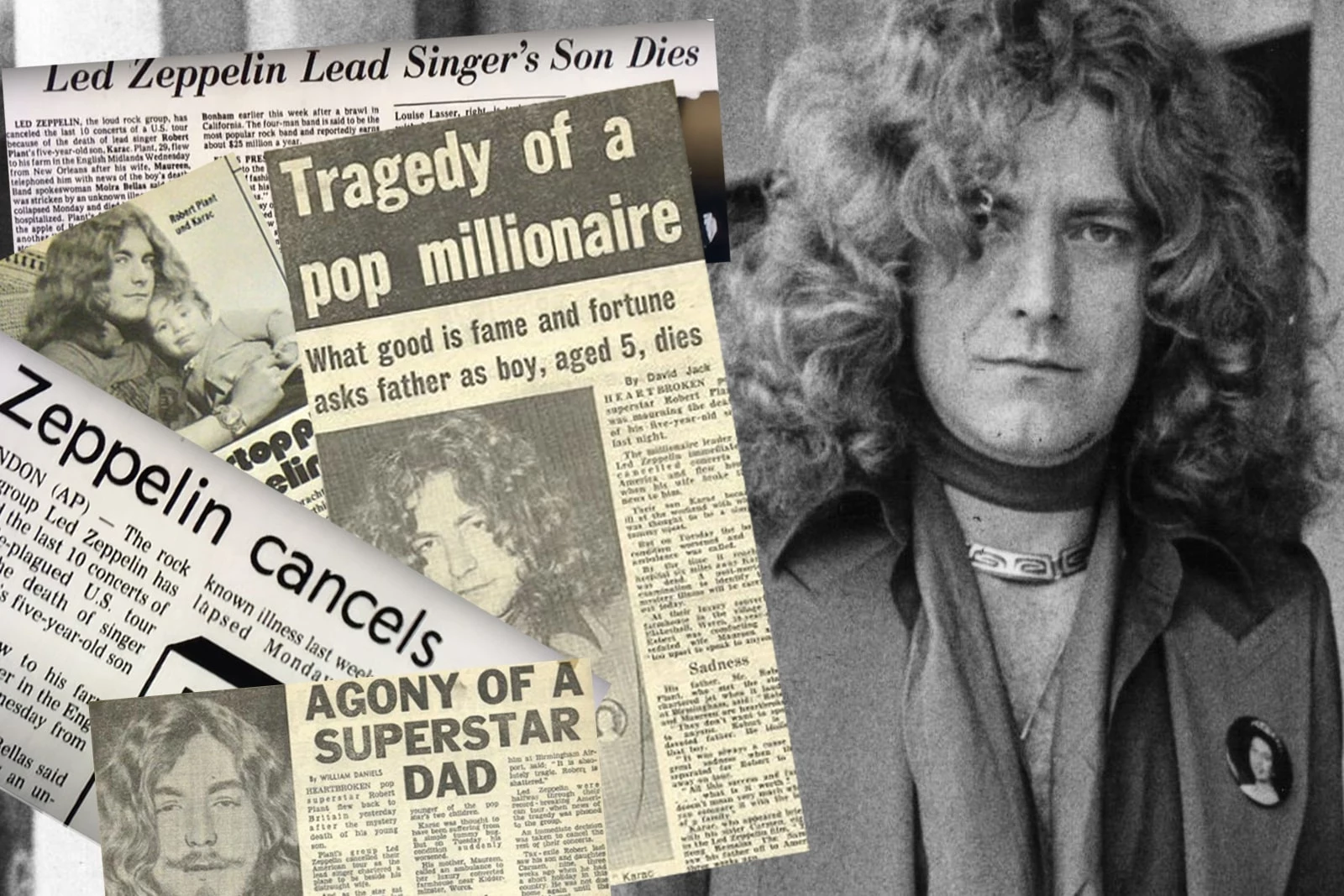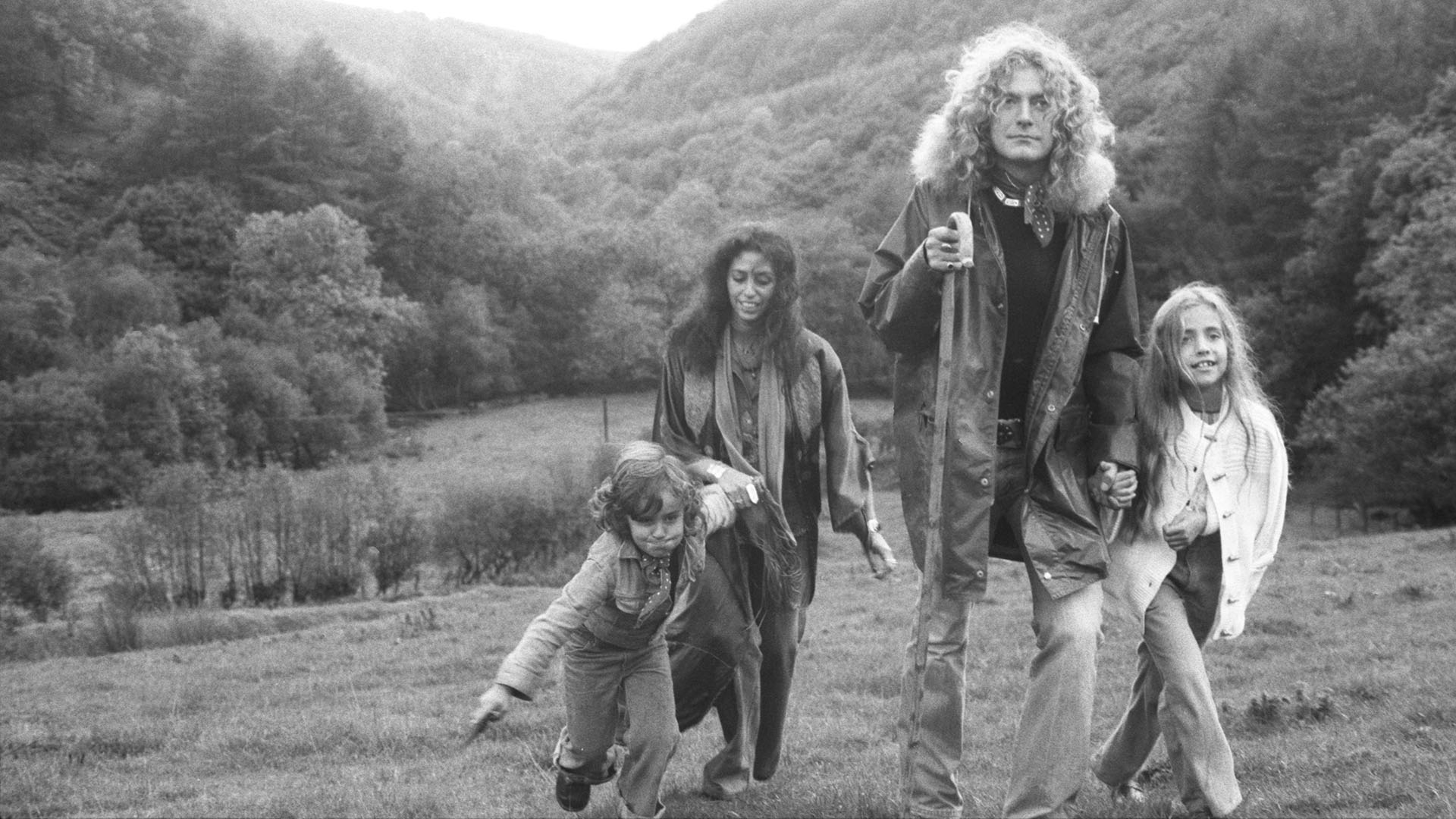Could the pain of unimaginable loss fuel the creation of some of the most enduring music of all time? For Robert Plant, the legendary voice of Led Zeppelin, the answer is a resounding yes.
In a poignant interview with Classic Rock, Plant revisited a chapter of his life marked by profound grief: the untimely death of his five-year-old son, Karac, in July 1977. The tragedy, a result of a virulent stomach virus, cast a long shadow over Plant's personal life and profoundly influenced his artistry, birthing some of Led Zeppelin's most emotionally resonant compositions. The event occurred during a pivotal moment in the band's career, further compounding the devastation.
| Full Name: | Robert Anthony Plant |
| Date of Birth: | August 20, 1948 |
| Place of Birth: | West Bromwich, Staffordshire, England |
| Parents: | Robert C. Plant, Annie Celia Plant (ne Cain) |
| Spouse(s): | Maureen Wilson (married 1968, divorced 1983) |
| Children: | Carmen Plant, Logan Plant, Jesse Lee Plant, and the late Karac Plant |
| Occupation: | Singer, Songwriter, Musician |
| Known For: | Lead singer and lyricist of the rock band Led Zeppelin; successful solo career. |
| Musical Style: | Hard rock, blues rock, folk rock |
| Associated Acts: | Led Zeppelin, The Honeydrippers, Page and Plant |
| Notable Songs: | "Stairway to Heaven," "Whole Lotta Love," "Kashmir," "All My Love," "Blue Train" |
| Website: | Robert Plant Official Website |
Born in West Bromwich, a town steeped in the industrial heart of England, on August 20, 1948, Robert Plant's musical journey began amidst the sounds and rhythms of his upbringing. His father, Robert C. Plant, a qualified civil engineer and a veteran of the Royal Air Force, and mother, Annie Celia Plant (ne Cain), a woman of Romani heritage, instilled in him a sense of heritage that would later permeate his music. As Plant himself would later reveal to journalist Dan Rather during a 2018 episode of his series "The Big Interview," these early influences shaped his understanding of life and the world around him.
The year 1977 proved to be a pivotal and ultimately heartbreaking one for Plant. Led Zeppelin, at the zenith of their global dominance, were on tour in the United States. The band was scheduled to play a show in New Orleans, a city already legendary for its musical legacy. But fate, in its cruelest fashion, intervened. Shortly after arriving in New Orleans, Plant received news that would forever alter the course of his life: his young son, Karac, was gravely ill. The details were sparse, but the implications were devastating. Karac, barely five years old, was battling a virulent stomach virus, and the prognosis was grim.
As the world turned, Plant was confronted with the stark reality of his son's illness. On July 26, 1977, while Plant was still on tour with Led Zeppelin in the US, Karac succumbed to the illness. The band was forced to cancel the remainder of their tour, a testament to the weight of the tragedy and the band's loyalty to their frontman. The news ripped through the music world, but the pain was, of course, most acute for Plant, his family, and those closest to them.
The emotional fallout of Karac's death was immense. Plant himself has spoken candidly about the depths of his despair and the struggle to come to terms with such a profound loss. His grief was not only personal but it spilled over into his creative world, inspiring some of the most moving and memorable songs in Led Zeppelin's catalogue. "All My Love," a song that stands as a testament to the joy and love Karac brought into the family's life, emerged as a powerful tribute. As Plant himself put it, the song was "just paying tribute to the joy that he gave us as a family and, in a crazy way, still does occasionally." It became a beacon of light, a way to commemorate a life cut tragically short.
Other songs, too, were born from the crucible of grief. "Blue Train," a song steeped in melancholy, and "Walking into Clarksdale," a reflection on lifes journey, are both believed by some to be linked to the experience of loss. Plant's willingness to explore the darkest corners of human experience made his music both intensely personal and universally relatable.
The impact of Karac's passing extended beyond the realm of music. It served as a catalyst, prompting Plant to re-evaluate his priorities and his relationship with the world. It was a turning point, forcing him to question the future and to find new meanings in the wake of tragedy. The strength of the band was tested, and the bonds of brotherhood and shared experiences were what held them together.
An autopsy, conducted on August 1, 1977, officially determined that Karac's death was the result of a severe, undetermined stomach ailment, underscoring the sudden and inexplicable nature of the tragedy. The illness, which swept through the family, ultimately took the life of the young Karac. He was the first son of Robert Plant and his wife, Maureen Wilson Plant, and he possessed the same blond, curly hair as his famous father.
The story of Karac's life and death is a stark reminder of the fragility of life and the enduring power of love and art. The legacy of Karac Plant lives on, not only in the memories of those who knew him but also in the music that continues to touch the hearts of millions. The pain of loss, transformed into the beauty of music, ensures that Karac's spirit will never be forgotten.
Plant's bandmates, Jimmy Page, John Paul Jones, and John Bonham, stood by him during this difficult time. Their unwavering support helped Plant navigate the storm of grief, a testament to the deep bonds that formed within the band. The band's collective response to the tragedy underlines the importance of friendship, loyalty, and shared experience.
The story of Karac Plant is a poignant and moving reminder of the enduring power of love, grief, and art. His name, though tragically associated with a life cut short, is also etched in the annals of musical history, a testament to the lasting impact of his fathers work and the songs that will forever resonate with those who have experienced their own losses.
The impact of Karac's death was immense, leaving an indelible mark not only on Plant's life but also on the direction of Led Zeppelin's music. Songs like "All My Love" are testaments to the transformative power of grief, turning sorrow into a legacy of beauty and remembrance.
The world remembers Karac Plant, the apple of his fathers eye, through the music that continues to inspire and comfort. His memory lives on, a testament to the profound impact of love, loss, and the enduring power of art to heal and connect us all. The events of 1977 served to redefine Plant's life and artistic output, transforming the tragedy into a powerful source of creativity that continues to touch the lives of countless individuals.


